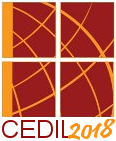Submission & Proceedings > Call for papersThe pervasiveness of digital tools and resources in everyday life has impacted the relation to language and modified certain language uses. This change affects linguistic and teaching practices as well as language research (methodology and subjects). We invite young researchers to propose their analysis, with respect to their research field, of the topics developed below. THEME 1: digital technologies in research methodology Research methodologies in language science have integrated digital tools and resources paving the way to new approaches.
THEME 2: digital technologies in native and foreign language teaching Language teaching practices and learning situations have been modified with the introduction of digital technologies.
THEME 3: digital technologies in language practices Digital technologies have brought about new practices and new contexts of communication, resulting in new language variants (SMS, tweets etc.) which expand the field of linguistic analysis.
Languages Presentations will be in French or in English. Paper submission This conference is for young researchers only (doctoral students and young doctors having presented their thesis within the last three years). Paper proposals written in French or in English should be two pages maximum (bibliography included) and respect the style sheet available on the conference website. Papers should be submitted on this site as well, before the 15th of November 2017 4th of December 2017. Agenda
Communication procedures Young researchers’ presentations will be accompanied by plenary conferences given by researchers from different disciplinary fields. The selected proposals will result in 20-minute presentations followed by a 10-minute discussion. Conference proceedings The accepted abstracts may result in the publication of an article. Contact For further information on registration and submission procedures: cedil18@sciencesconf.org. |


